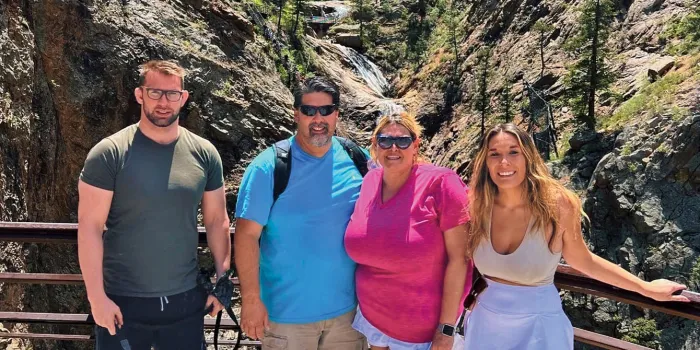When you have a bleeding disorder, the questions soon arise: Should you tell your friends? How much do you tell them? Whom do you trust with this very personal information? This issue becomes more critical as you reach young adulthood and become more independent from your parents.
“I was diagnosed with a platelet disorder when I was 14,” says Gabi Flores, 24, of St. Louis. “I was very shy, but I had to tell my friends something because I was out of school a bit for doctor appointments. I’m glad I did because they all had my back and helped me.”
WHY TELL YOUR TRUSTED FRIENDS?
Disclosing your bleeding disorder to others can be a crucial part of self-advocacy, says Javey Dallas, MSW, LCSW, a social worker at the Oklahoma Center for Bleeding and Clotting Disorders in Oklahoma City. “While your parents and loved ones watched out for you for all your life and were your advocates, now you need to start advocating for yourself so you can transition into independence,” he says.
Telling others also has mental health benefits. “It does mean a lot to share that part of myself. It makes me feel seen and understood,” Flores says.
WHO DO YOU LET IN?
Not everyone has to know. But if you were not able to advocate for yourself, who would you trust to step up for you? Look for the people who would act responsibly and in your best interests with the information. Ask yourself: Who are the people you tell your secrets to? Who do you trust to have your back if others are trying to get you to do things that you know aren’t safe for you? “Those are the people who see you as a whole person,” Dallas adds.
WHAT INFORMATION SHOULD YOU GIVE?
Flores tells her friends about symptoms to watch out for. For example, when she was playing college soccer, she was on a medication that made her limit her water intake. If she drank too much, she would get symptoms that mimicked dehydration. She told her teammates about this, and they all watched out for her.
She also explains things to her friends that they don’t have to worry about. “I’m an athlete, but my friends sometimes wonder if I should be playing that hard. I tell them I know my limits and what not to worry about.”
FRIENDSHIP IS A TWO-WAY STREET
As the saying goes, everyone you meet is fighting a battle you know nothing about. Just as you seek normalcy and acceptance, so do your friends. Ask if you can help them with anything. “I try to put myself in other people’s shoes and consider that maybe I don’t see the full picture of what somebody is going through, and there might be underlying factors,” Flores says.
Dallas urges you to create a culture of acceptance. “This will lend itself to forming the community and the friendships that you want. Being able to share allows you to shape not only your present, but also your future.”
Read More: Deciding When and How to Discuss Your Bleeding Disorder with Potential Partners

